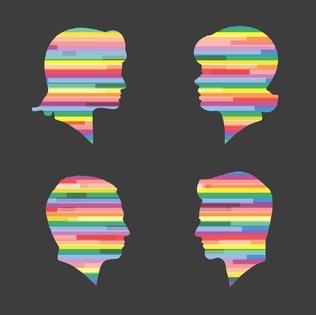I voted for Hillary a few weeks ago, and I still support her, granted with less enthusiasm now. I'm not a single-issue voter, nor do I change my opinion of candidates' policies based on single cringeworthy interviews. And truly, as tone-deaf and detached from reality as Hillary's statements were, they remain statements. The true villain here does and should remain the Reagan administration, for all the things it did and didn't do in the face of a terrifying epidemic.
And really, for all the Clintons' faults, they actually have done good work on HIV/AIDS. Bill Clinton increased funding for AIDS research by 150 percent while in office, and the Clinton Foundation (again, for all its faults) has helped bring HIV/AIDS treatment to much of the developing world. When I heard Hillary's comments yesterday, I actually wondered if she was confusing the Reagans for...the Clintons.
But that makes this all the more frustrating. Why would Hillary squander her and her husband's actually-pretty-good record? Why did she say something so completely stupid, for no discernible reason?
Bad interview prep, to be sure. And we can pontificate all day about what it says about Hillary's conceptions of social change. But there's something larger and even more frustrating going on here.
Let's take a look at this morning's Huffington Post:
Hillary should not have said what she did. We should not let her forget that. But while we examine her remarks, we should also examine our culture of hagiography.
A culture where "do not speak ill of the dead" has become "you must speak well of the dead."
Where we file an article attacking a woman for praising a bad record next to an article sanctifying the woman with the actual bad record.
Where Hillary feels obligated to heap praise on Nancy Reagan in the first place, given that Hillary's insistence on a career, retention of her maiden name, and politically active role as first lady effectively rejected everything Nancy Reagan stood for.
Where Bernie Sanders, a politician who represents the absolute antithesis of everything the Reagans stood for, is obligated to put out a press release calling Nancy "an exemplary first lady."
This is not at all new to Nancy Reagan. When Antonin Scalia died a month ago, I can't count the number of articles and Facebook posts I saw– from liberals – memorializing him for his "influence," his eloquence, his passion as a jurist, even his friendship with Ruth Bader Ginsburg.
As if any of that should remotely distract from his actual record, his seriously retrograde attitudes about sexuality, his terrible record on criminal justice, his disturbing obsession with capital punishment; or the fact that his "influence" is most deeply felt in the opened floodgates of unfettered campaign cash, and the severe loosening of our already-loose gun laws.
We've talked a lot during this election cycle about the "Establishment," and how "establishment thinking" and "establishment politics" can impede social progress. But a missing part of that conversation is how our own culture's expectations and assumptions reinforce the "Establishment."
When we expect and produce hagiographies for people like Nancy Reagan and Antonin Scalia, we distract from honest conversations about their legacies. We effectively say that their substantive records are secondary to their significance, that they deserve praise and memorialization merely because they once had power and influence.
Nancy Reagan just died. She was by all accounts a good individual who meant well. She does not deserve our scorn, not right now. But she deserves honesty — from us just as much as Hillary.





